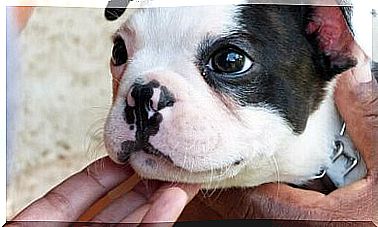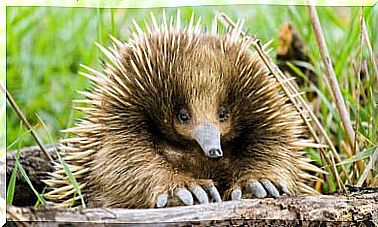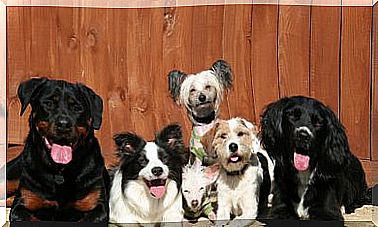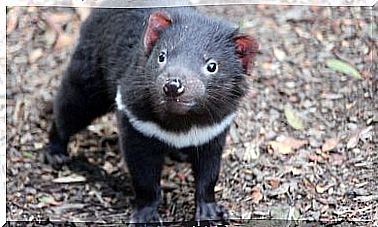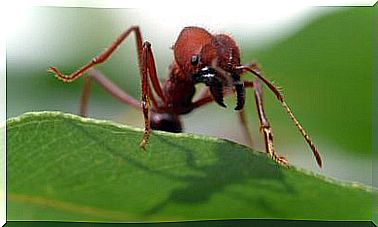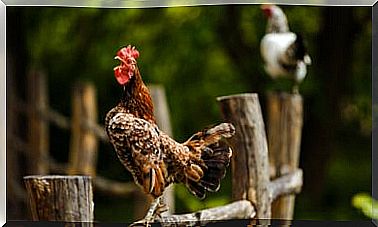Medicinal Mushrooms For Dogs What Are They?

Medicinal mushrooms for dogs include a set of fascinating organisms that belong to the Fungi kingdom . This group includes mushrooms, yeasts, and molds. It is interesting to know that within the enormous variety of mushrooms, in addition to medicinal ones, there are edible, hallucinogenic and poisonous species.
This is why mushrooms have coexisted with humans since ancient times, providing us with medicinal remedies, food products as widespread as beer, or poisonings and even death.
Due to its close relationship with the human diet, it is common to wonder: Are there beneficial mushrooms for dogs? Here we show it to you.
Ancestral knowledge of medicinal mushrooms
Mushrooms have been used for centuries in Asian cuisine and traditional medicine. However, its medicinal properties remained unknown to the West for a long time.
In recent decades, a great deal of research has focused on characterizing the bioactive compounds of many fungi, mainly members of the Basidiomycetes family .
What components of medicinal mushrooms are attributed healing properties?
The most common active ingredients in these higher mushrooms are known to be their polysaccharides. These exhibit immunostimulating, antitumor, antimicrobial, anti-inflammatory, antioxidant, prebiotic, hypoglycemic, and hypocholesterolemic effects.
In recent years, some of these fungi or their polysaccharides have been commercialized in pharmaceutical applications. Also, they are used as part of a healthy diet and as a traditional cure for various human and veterinary diseases.
Additionally, other active components of medicinal mushrooms include terpenes, alkaloids, sterols, phenolic compounds, proteins, and fatty acids.

What are the most popular medicinal mushrooms for dogs?
The following species produce medically important polysaccharides that have undergone some clinical trials. Most of these compounds are currently produced by Asian pharmaceutical companies:
- Lentinula edodes: produces the lentinan. Antibiotic activity has been attributed to it. Stimulates white blood cell counts, antibody and interferon production, and inhibits prostaglandin production.
- Schizophyllum commune: it is a producer of schizophyllan.
- Trametes versicolor: generates PSK or polysaccharide-K, sold commercially as Krestin and also the PSP or polysaccharide.
- Grifola frondosa: produces the Grifron-D polysaccharide.
- Chaga: supports the immune system and has anticancer properties.
- Cordyceps militaris: cause of cordycepin, adjuvant in the treatment of patients with human and animal asthma.
- Grifola frondosa or Maitake: it has a high content of phospholipids and certain lectins, which favors brain function, nerve function and regeneration. Anticancer properties are attributed to it.
- Ganoderma lucidum, also known as Ling zhi or Reishi: among its many medicinal properties, it stimulates the immune system and the bone marrow. It has analgesic, antiviral and antibacterial properties. Its powerful antioxidant activity is associated with improving the quality of life in the elderly and pets.
- Shiitake – Contains phytochemicals known to support the immune system and cell functions.
- Trametes / Coriolus versicolor or Yun zhi: Also known as turkey tail, it has been shown to improve survival in patients with canine hemangiosarcoma.
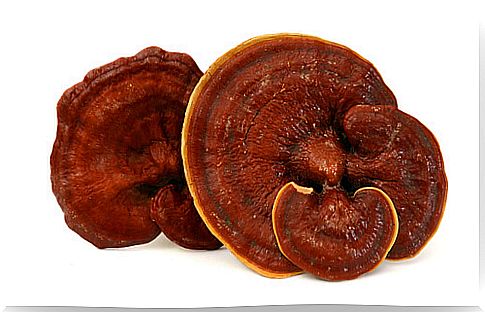
How do these polysaccharides work?
In all living organisms there is an innate mechanism that allows immune cells to recognize molecules of potential pathogens. This is the case of the polysaccharides of the cell wall of fungi and yeasts.
Thus, these molecules, when recognized, trigger protective immune responses. Thanks to this strategy of nature, we would be protected from the old and continuous threat of fungal infection. Protection against diseases like cancer would be an added effect.
Therapeutic application
Medicinal mushrooms are currently used as an adjunct in the treatment of cancer. In humans, they are used as an adjunct to chemotherapy. Some species of medicinal mushrooms are known to help prevent the side effect of chemotherapy, especially bone marrow suppression.
Although historically ancient Asian medicine has used these preparations, clinical trials on the use of mushrooms for the treatment of cancer in animals or humans are still lacking. However, the indications for the use of fungi in humans, in various types of cancers , have been extrapolated to animals.
How safe are medicinal mushrooms for dogs?
So far, medicinal mushrooms appear to be safe for people and pets. It should be noted that occasional side effects have been reported including mild digestive upset, dry mouth, and skin rash. Such effects resolve immediately upon discontinuation of use.
Some species of fungi have anticoagulant properties, which is why some authors advise against their joint administration with other drugs with this effect. Consultation with a holistic veterinarian who knows these therapies is recommended before deciding to apply this diet to your pet.
